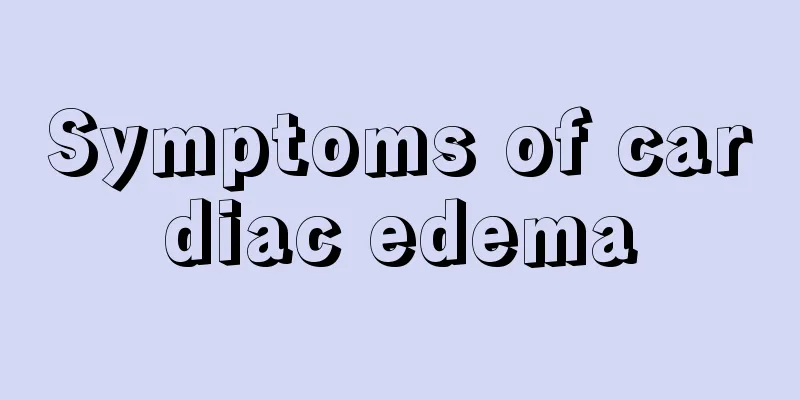How does the hospital treat early-stage gastric cancer

|
How does the hospital treat early gastric cancer? Gastric cancer is divided into early gastric cancer, mid-stage gastric cancer and late gastric cancer. The treatment methods for each stage are also different. Our common treatment methods for gastric cancer include surgical treatment and chemotherapy. Let's take a closer look at how patients with gastric cancer at different stages should be treated. Most patients with early gastric cancer are in good general condition. The tumors of these patients are limited to the mucosa or submucosa, or the tumors are large and have affected the muscular layer but have not penetrated the serosa. The tumors are estimated to be resectable. Even if there is regional lymph node metastasis, the lymph nodes are active and can be removed. For them, surgical treatment may cure them, and radical surgery should be actively sought. Patients who are determined to have invaded the muscular layer or have obvious lymph node metastasis during surgery, especially those whose case results indicate a poor prognosis, should receive postoperative adjuvant chemotherapy. Cellular immunotherapy can also play a role in cooperating with treatment and promoting recovery for such patients. Patients in the middle stage are generally in a worse condition. The tumor has penetrated the entire layer of the stomach wall, has adhered to surrounding tissues or organs, has metastasized to local lymph nodes, and has been restricted in activity. The treatment options for this type of patients should be based on comprehensive treatment. Those who can be surgically removed should first undergo surgical treatment (called palliative resection), followed by chemotherapy after surgery. For so-called "locally advanced" gastric cancer cases with obvious regional lymph node metastasis, preoperative radiotherapy has been shown to increase the surgical resection rate and improve postoperative survival rate. Chemotherapy should also be administered after surgery. A small number of patients with reduced tumors can also strive for surgical resection, and then continue to use chemotherapy. Cellular immunotherapy can be used in conjunction with the treatment process. Advanced cases refer to those where local tumors cannot be radically removed or have metastasized to distant or even widespread sites. Such patients can undergo palliative surgery. Patients in good general condition can use more aggressive chemotherapy. Patients in very poor general condition, such as those who are bedridden or have cachexia, should not use chemotherapy with high intensity. Cellular immunotherapy can often play a greater role. Moreover, cellular immunotherapy can achieve good therapeutic effects in combination with surgery, radiotherapy and chemotherapy. Combining cellular immunotherapy after surgery can accurately eliminate residual tumor cells, prevent recurrence and metastasis, improve the patient's quality of life and prolong life. Radiotherapy and chemotherapy combined with cellular immunotherapy can systematically and thoroughly eliminate tumor cells, alleviate the toxic side effects of radiotherapy and chemotherapy, regulate the patient's own immune function, and ensure the patient's full recovery. |
<<: Where is the best hospital for gastric cancer
>>: How to choose a Chinese medicine hospital that is good at treating gastric cancer
Recommend
What is the treatment method for early cervical cancer
If you have cervical cancer, it will have a great...
What are the treatments for amblyopia?
Many patients with amblyopia are born with the co...
How to adjust your mindset during the slump in your senior year of high school?
Senior year of high school is one of the most imp...
I feel itchy after drinking barley and red bean water
Red bean is a crop that only grows in the south. ...
Can breast cancer be cured
Strictly speaking, there is no concept of cure fo...
What is the cause of bedsores in patients with liver cancer? Nursing methods for bedsores in patients with liver cancer
Liver cancer patients are bedridden for a long ti...
The best time to take lysine
Lysine is of great help to our health. The best t...
CCTV exposed: Carrying this will kill people
You spend a huge amount of money to buy a treasur...
Postoperative gastrointestinal decompression nursing for patients with esophageal cancer
After surgery, patients with esophageal cancer ne...
What is the relationship between cervical cancer and nutrition
The cause of cervical cancer seems to be related ...
Sauna precautions
Sauna is very popular in China now. Many of us li...
What are the dangers of not treating kidney cancer in time
The number of people suffering from kidney cancer...
What is the best way to smoke mustard?
In life, many people like to smoke, but everyone ...
There are so many dangers of overusing the brain
Overuse of the brain is a new term in recent year...
What are the folk remedies for treating lung cancer? 9 folk remedies for treating lung cancer you may want to try
The onset of lung cancer is very painful for us, ...









